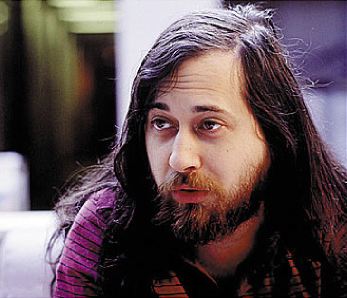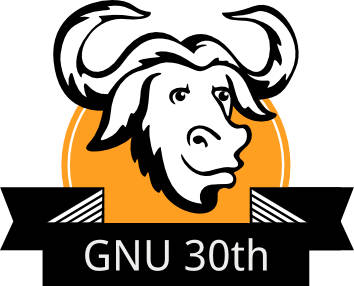| GNU Manifesto Published Thirty Years Ago |
| Written by Alex Armstrong | |||
| Wednesday, 25 March 2015 | |||
|
It was in March 1985 that Richard Stallman first set out his belief in the ideal of Free Software with the publication of the GNU Manifesto. Richard Stallman is a controversial character in the programming world and even if you don't agree with the details of what he promotes, it is obvious that the software world today would be very different if he had not written and put into effect the GNU Manifesto 30 years ago. At that time most software that you encountered was closed source and proprietary. You bought an operating system, a compiler and so on and only the software you wrote using these tools for yourself was accessible to you in source code form. The exception was the freely available code of Unix project and similar, mostly academic, projects. These were free - the software was given away and so was the source code, but they really didn't have a plan or a philosophy behind the intention. Often "free" software that came with source code was not up to the standards needed to be sold. For example, Tiny Basic was a Basic interpreter published in its entirety in Dr Dobb's Journal, but it was very limited, integer-only, version of the language. Its value was what you could learn from it and what you could build using it.
It was when AT&T started to sell copies of Unix without source code that Richard Stallman, usually known by his initials rms and one of many students at MIT who had helped to code it, decided that enough was enough. He was convinced that free software was what the world needed and so he left the MIT Artificial Intelligence Lab in 1984 and founded the GNU project, with the intention to create a completely open source version of Unix. GNU stands for Gnu's Not Unix and the recursive acronym is typical of its quirky humor. In 1985 the GNU Manifesto was published in Dr Dobb's Journal and this set out the philosophy: "I consider that the Golden Rule requires that if I like a program I must share it with other people who like it. Software sellers want to divide the users and conquer them, making each user agree not to share with others. I refuse to break solidarity with other users in this way. I cannot in good conscience sign a nondisclosure agreement or a software license agreement." In the same year Stallman set up the Free Software Foundation and he remains its President .
The GNU project created a lot of the software needed for a replacement Unix - the GCC compilers, GNU C library, GNU Bash shell and so on. What the project lacked was a kernel to complete the OS. They were working on the Hurd microkernel, but it wasn't ready and it is still in development. When Linus Torvalds released the Linux kernel in 1991 and then changed the licence to the GNU GPL in 1992 the OS was complete and we have GNU/Linux. If you have always referred to Linux as just "Linux" then you might be surprised to know that the FSF claims that it really should always be called "GNU/Linux". There is also now a modified GNU/Linux system that has all proprietary and non-free code removed - Linux-libre. For all of the open source software that the GNU project and the FSF have created, it the philosophy of free software that has had a huge effect. So much so that many only know of Richard Stallman as a far left philosopher or politician. His speeches and writings can seem like extremism and be dismissed as advocating lunatic positions. If you throw in some of his strange humor, it is easy to get the wrong idea. However, the GNU/FSF philosophy as expressed and practiced by Stallman is extreme because it never relaxes the pure logic that all software should be free and all proprietary software is to be avoided. As a result he doesn't own a mobile phone, is very careful about what computer hardware he uses, doesn't use Facebook, Twitter, Flash Player and refers to the Kindle as the "Swindle". Enforcing this logic to the very last drop can look like an almost religious conviction and his use of words like "right", "wrong", "conscience", "honor" and "dishonor" serves to reinforce this impression. Today open source isn't necessarily of the more radical kind promoted by GNU and the FSF. Some programmers are happy not only to own iPhones, but to write programs for them and give Apple the keys to their future - many of whom still profess an allegiance to open source and even the Stallman flavor of it. We programmers are not always logical.
As programmers we may not always agree with his position of relentless logic, but even if we can't follow it, we should respect it.
More InformationRelated ArticlesEFF Asks For The Right To Access Software Protest Against Adding DRM APIs To HTLM5 Code of Conduct for Mobile Apps Scriptkitty Dreams - Rights for Programmers! DRM APIs To Be Part of HTML5 Standard
To be informed about new articles on I Programmer, install the I Programmer Toolbar, subscribe to the RSS feed, follow us on, Twitter, Facebook, Google+ or Linkedin, or sign up for our weekly newsletter.
Comments
or email your comment to: comments@i-programmer.info
|
|||
| Last Updated ( Wednesday, 25 March 2015 ) |




